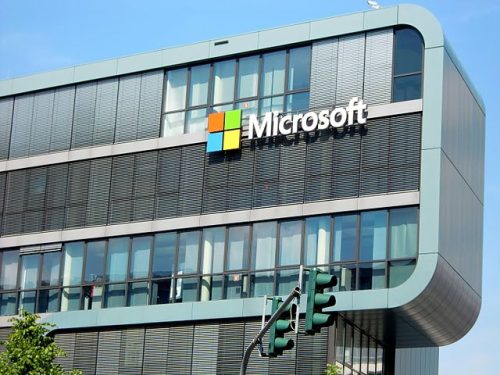To the delight of tech enthusiasts around the globe, Microsoft has introduced two new chips at its recent Ignite conference, signaling its entry into the competitive landscape of specialized processors. The Maia 100 artificial intelligence chip is positioned to compete with Nvidia's highly sought-after AI graphics processing units, while the Cobalt 100 Arm chip aims to rival Intel processors for general computing tasks.
The move comes as major technology companies increasingly offer clients more choices for cloud infrastructure to run applications, responding to market demand for diversified and specialized solutions. Microsoft, with substantial cash reserves of about $144 billion, holds a 21.5% share of the cloud market, making strategic investments to maintain its competitive edge.
The Maia 100 AI chip, designed to enhance AI computing, is undergoing testing for applications such as Microsoft's Bing search engine's AI chatbot, the GitHub Copilot coding assistant, and GPT-3.5-Turbo, a large language model developed by Microsoft-backed OpenAI. The company is exploring the chip's potential to meet the demands of various AI-driven services.
Virtual-machine instances running on the Cobalt chips are expected to be commercially available through Microsoft's Azure cloud in 2024. Unlike some competitors, Microsoft is not planning to sell servers containing its chips, focusing on cloud-based offerings. The company aims to leverage customer feedback in the development of these chips, emphasizing responsiveness to evolving market needs.
The introduction of specialized AI chips addresses the ongoing GPU shortage and positions Microsoft to cater to diverse computing requirements. However, the company is set to distinguish itself by offering these chips through its cloud platform rather than through direct server sales.
While Microsoft has not disclosed specific details on the Maia 100's performance compared to alternatives like Nvidia's H100, the company's approach aligns with the industry trend of enhancing localized production capabilities. The cobalt processors, expected to perform favorably, could find faster adoption, building on the success of similar offerings by competitors.
This strategic move by Microsoft aligns with the broader industry trend of enhancing localized production capabilities and providing clients with diverse options for cloud infrastructure. As cloud computing continues to evolve, companies are investing in specialized chips to meet the growing demand for efficient and tailored solutions, solidifying their positions in the competitive cloud market.
The Maia 100 and Cobalt 100 Arm chips represent Microsoft's commitment to staying at the forefront of technological advancements, catering to the diverse needs of its clients while contributing to the ongoing evolution of cloud computing solutions.
























